
JOIN US
GET OUR KUNEKUNE
NEWSLETTER
New and highly discounted products, fresh and hot stories & useful information
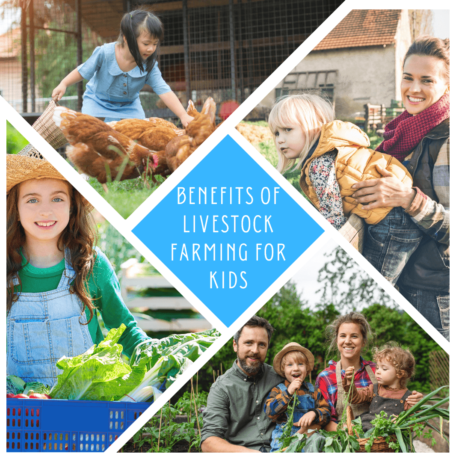
Are you raising kids and livestock?
Benefits of Livestock Farming for Kids
Raising children in a Livestock Farming environment can teach your children life-long skills that will carry forward throughout the rest of their lives. In this article, we will explore what your children will learn on your livestock farm.
Raising children involves introducing them to both the joys and responsibilities of life. But did you know that these life lessons can be found on a farm? Livestock farming can be a great way to help teach children important values like hard work, responsibility, and food production. This blog post will explore how livestock farming can help children, and the kind of lessons they can learn. We’ll look at the benefits of raising livestock, the importance of animal husbandry, and the lessons they will teach to your children on the farm.
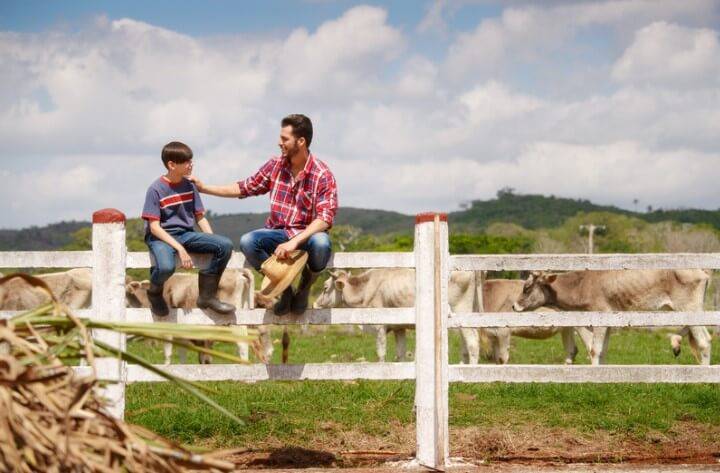
Exploring the Responsibilities of Animal Husbandry on the Farm
In today’s world, raising a family and livestock has become an increasingly common occurrence. Once considered a lifestyle of the past, animal husbandry is one way that families can provide food for consumption and earn a living. Not only do you have to take care of children in your household but also take responsibility for animals such as cows, chickens, horses, or pigs. The rewards far outweigh the challenges, if done right.
First off, it is paramount for any aspiring farmers to understand the basics of responsible animal husbandry so they can guarantee their safety as well as their livestock's health and proper growth rate. Knowing how much feed they need daily. along with what supplements are necessary is key when striving towards profitable productivity rates from these animals.
Additionally, having good facilities that create appropriate environmental conditions should be considered like warm housing structures during wintertime or enough ventilation inside any kind of shelter used by these creatures. You are responsible for their well-being and your human residents at home too!
Providing proper care is important. It can be a balancing act with children and getting them involved in the care of the animals is important to teaching them about life, death, responsibility, and caring for others. It takes discipline to properly maintain a balance between running a successful livestock business venture and raising children.
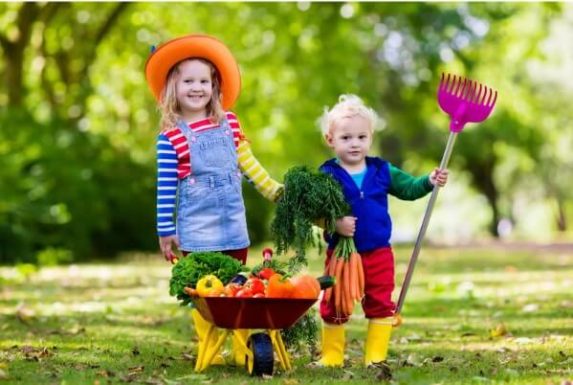
Understanding the Benefits of Livestock Farming for children
Raising livestock on a farm not only provides delicious food but also offers many educational opportunities for children. In this article, we’ll explore the benefits of raising livestock and how it can provide a meaningful learning experience for kids. We'll take a look at the long-term environmental effects that raising livestock has on our planet and discuss why investing in this type of farming is becoming increasingly popular amongst today’s families. Raising livestock is an excellent way to teach children about responsibility, respect for nature, and other important life skills that help prepare them for adulthood.
Livestock require daily care which enables young farmers to gain experience with livestock management from an early age. As children grow older, they can further their knowledge by exploring topics such as animal husbandry practices or housing designs best suited for their particular livestock on the farm. This will not only create real-world job experience; it also helps instill valuable lessons in hard work, patience, perseverance, teamwork, and dedication — all essential qualities needed when entering adulthood.
Children will learn where their food comes from and about how free-range livestock helps the environment. Such as animals that free range helps to promote soil health and how manure fertilizes the surrounding fields. They will learn how pasture-raised meat is healthier than factory-farmed meat. Also, how small-scale local farms are responsible stewards for helping preserve biodiversity? Supplying fresher foods directly from the source – the farm.
How Livestock Farming Teaches Children Lifelong Lessons
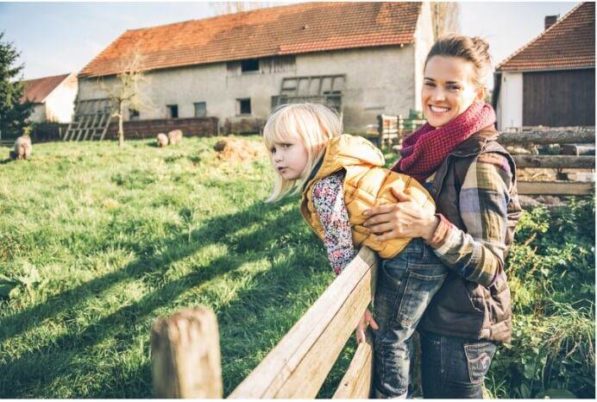
Raising livestock can teach children many life skills that will serve them well into adulthood. By taking part in tasks associated with livestock farming, such as daily feeding and caring for animals, they gain a real appreciation of hard work and diligence. Not only that but interacting with these creatures also encourages an understanding of nature and the environment.
Read on to discover five lifelong benefits associated with raising livestock for children.
Teaches Responsibility
Taking care of animals is no small task—it requires dedication each day to ensure their needs are met such as food and water distribution, cleaning stables or pens when necessary, administering medication if needed or even providing basic training exercises like teaching a horse to walk on lead ropes. This daily responsibility teaches youngsters that we have duties and responsibilities which must be taken seriously in order to protect their health & safety, useful skills indeed!
Enhances Social Skills
Animals need not just physical care but social attention too; interacting with them teaches kids how different personality types behave alongside each other. As an added bonus it’s often observed by those who work around livestock regularly, that empathy levels increase significantly afterward. So, it's likely your child will get more out than they bargained for career-wise further down the line!
Increases Physical Strength & Endurance
Being around animals makes kids move much more than sitting indoors watching TV, playing video games, or chatting on the phone. Whether it is carrying heavy feed bags, feed buckets, or water - all active activities provide exercise without feeling like you're exercising! In addition, strength is built up over time through lifting items related to animal care. Plus, repetition builds endurance meaning longer working days become easier over time. These are great traits that can easily be transferred into future workplace environments where resilience is valued greatly.
Builds Self Confidence & Mental Toughness
Nothing good comes easy – from learning new routines surrounding animal welfare to learning about hard work, this builds confidence and character. Learning patience through experiencing sometimes unpleasant scenarios such as birthing complications or the death of beloved companions. Dealing with these kinds of normal events on the farm helps build character. So don’t underestimate what impact regular exposure in this area could have on your human offspring!
Encourages Respect for Nature & Conservation Issues
One effect most people overlook regarding children’s farming education is awareness! It may sound obvious, yet spending quality time outdoors among livestock has proven extremely insightful for young minds. This will create a strong respect not only for animals but for the earth and sustainability.
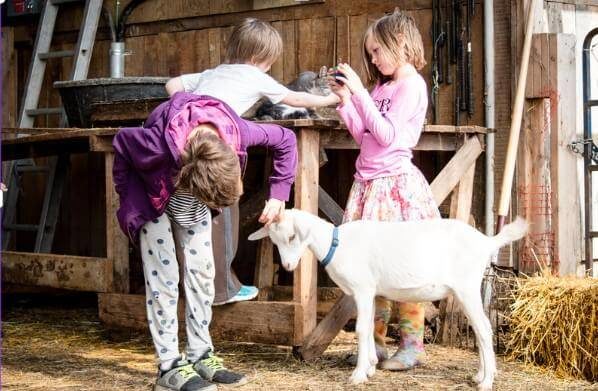
What Kids Can Learn from Caring for Livestock
Caring for livestock offers children a unique opportunity to learn valuable life lessons. From responsibility and commitment to empathy and understanding of the importance of hard work, raising animals can have many positive benefits on their development. Children who care for animals are provided with firsthand observation opportunities that allow them to connect more deeply with nature. This connection with livestock encourages compassion towards living things, as well as respect
and appreciation for the environment and natural resources.
Additionally, kids are able to develop problem-solving skills. As they apply practical strategies in resolving conflicts or other challenges they may encounter while looking after the animals in their care. Furthermore, caring for livestock helps children understand how food production works firsthand. This exposes them at an early age to sustainable agriculture practices which will help build a strong foundation of values focused on healthful eating habits later in life.
On top of that, tending to farm animals also promotes social interaction through teamwork when completing chores like milking cows or feeding chickens – something incredibly beneficial for kids’ personal growth! Finally – though often not thought about until it’s too late - raising livestock gives our youngest generations vital experience in shouldering responsibility.
These young farmers learn accountability by being responsible for an animal's well-being while managing time efficiently so all tasks get done before dark each night. All of these experiences teach core values associated with a hard work ethic which is priceless education outside traditional classroom settings!
The Impact of Teaching Food Production to Children
Raising livestock and children together can be a rewarding experience for both. Livestock offers the opportunity to teach valuable lessons on responsibility, hard work, and practical skills related to food production. Additionally, raising animals gives children an emotional connection with their surroundings as they watch their animals grow and thrive over time. Children who are exposed to the process of rearing livestock can gain knowledge about animal nutrition and health which is invaluable in understanding the importance of sustainable land management.
Furthermore, raising livestock encourages ethical farming practices that support natural resource conservation as well as the humane treatment of farm animals. Teaching children from an early age how to responsibly care for livestock also provides them with a greater appreciation for where their food comes from – it’s not just “something that appears on my plate” but rather something that requires ongoing care by others, before it arrives at dinner tables across the country!
With this newfound understanding, kids become more conscious consumers of food products like eggs or meat - supporting local farmers whenever possible! Rearing sheep, pigs, or chickens alongside your kids is a rewarding activity regardless of whether you practice commercial farming or hobby agriculture; being able to pass down traditional agricultural values while creating lasting memories will benefit families through generations! Even if you live in urban areas such activities like beekeeping can provide opportunities for teaching both adults and youngsters alike about pollinators and other important living organisms within our ecosystem!
Raising livestock as part of family life instills strong environmental stewardship values into Gen-Zers (and beyond)! That will hopefully stay with them long after their childhood years when they have grown up into decision-making adults capable of changing our society for the better.
The Long-Term Benefits of Teaching Kids About Livestock Farming
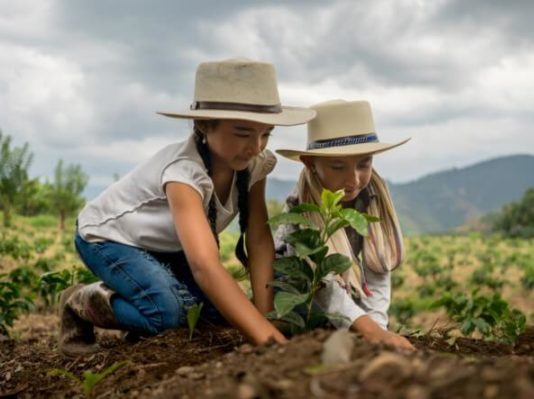
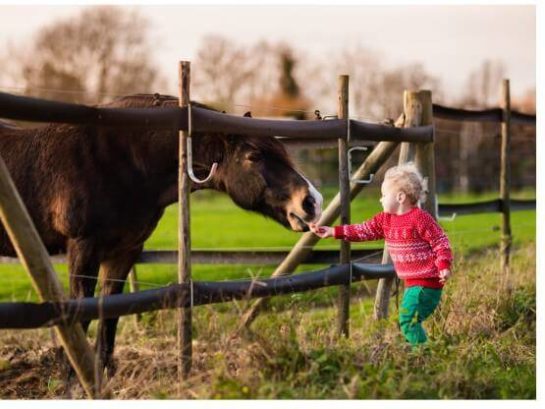
Raising livestock and children can be a rewarding experience. Not only is it an opportunity to teach your kids about the process of raising animals, but you also have the potential to provide them with long-term benefits that can help shape their future. First, there are many practical skills associated with taking care of livestock such as feeding techniques and grooming habits that may benefit your child in other aspects of life.
Animal husbandry involves understanding the nutrition needs of farm animals which requires knowledge of essential nutrients required to keep them healthy and productive. Learning these concepts could even spark an interest in agriculture or veterinary science in your child. Teaching your kids proper feeding practices teaches them not only about diet but also responsibility when caring for something else than themselves.
By encouraging problem-solving activities, from early ages, related to building shelters, building fences, developing better housing plans, and resource management, children will be more prone to use these ideas later on in life. They may use these problem-solving skills in a corporate job or working environment where improvisation skills are needed. These opportunities give children self-confidence as they see results from their hard work.
Overall communication levels increase significantly when children are directly involved in raising animals. Thinking outside the box and explaining those ideas will increase their ability to communicate more effectively with people and their parents.
In Conclusion
Teaching children about livestock farming offers a host of potential benefits for their long-term development. These include learning responsibility, developing empathy and respect for animals, and understanding nature and the environment. Moreover, teaching them the basics of animal husbandry provides a unique experience with long-term implications in terms of excellent animal welfare and the development of sustainable practices. By investing in their educational programming from an early age, we can give our children a head start on building these skills which will help them be successful not only as adults but also in life itself.
Registry Office
17500 Hamilton Arms Court Dewitt, VA 23840